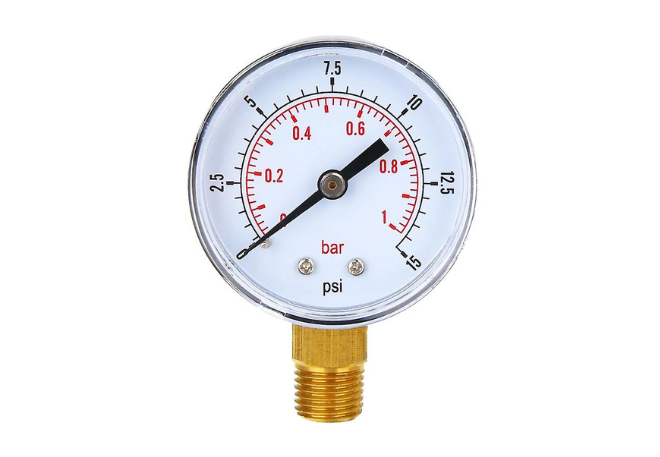Unleashing the Power of DC Motors: Are They the Right Choice for Your Project?
DC motors stand as a cornerstone in the realm of electric motors, motor controllers, and peripherals, offering a blend of efficiency, reliability, and versatility. Whether you're an engineer, hobbyist, or entrepreneur, understanding the capabilities and applications of DC motors can significantly enhance your projects and innovations. This comprehensive guide delves into the fundamental aspects of DC motors, providing you with a search generative experience to equip you with the knowledge you need to make informed decisions.
Understanding DC Motors: What You Need to Know
DC motors are pivotal in numerous applications due to their straightforward design and precise control. These motors are powered by direct current and consist of two primary parts: the stator and the rotor. The stator generates a stationary magnetic field that surrounds the rotor, which is attached to the output shaft. As electricity passes through the rotor, it interacts with the magnetic field, causing the rotor to turn and thus drive the motor's output shaft.
- Key Components: Brushed and brushless are the two main types of DC motors. Brushed motors have brushes that deliver current through the motor windings. In contrast, brushless motors use a controller to manage electronic phases.
- Performance: The efficiency of DC motors is one of their standout features. Brushless motors, in particular, offer higher efficiency and reliability as they do not have brushes that wear out.
- Control: Precision control is easily achieved with DC motors through various types of motor controllers and peripherals that adjust speed, torque, and position.
Advantages of Using DC Motors
The advantages of DC motors make them an excellent choice for many applications. From robotics and automotive systems to industrial machinery and consumer electronics, these motors provide the necessary power and control that many complex systems rely on.
- Speed Variability: DC motors excel in applications requiring speed control. Their speed can be adjusted over a wide range, using simple voltage adjustments or more sophisticated motor controllers.
- High Torque at Low Speeds: Unlike their AC counterparts, DC motors maintain a consistent torque level even at low speeds, which is crucial for applications such as electric vehicles or conveyor belts.
- Durability and Reliability: With fewer moving parts, especially in brushless models, DC motors are less prone to mechanical failures, ensuring longer operational lifespans.
Selecting the Right DC Motor for Your Application
Choosing the right DC motor involves understanding the specific requirements of your application and the characteristics of different motor types. Here’s what you should consider:
- Application Requirements: Evaluate the speed, torque, and control requirements of your application. For instance, applications requiring precise position control might benefit from a stepper motor, a type of DC motor that operates in discrete steps.
- Environment: Consider the operating environment. DC motors with enclosures are suitable for dusty or wet environments to protect internal components.
- Power Consumption: Assess the power availability and consumption requirements. Brushless DC motors might be preferable for energy-efficient operations.
Integration of Motor Controllers and Peripherals
To fully harness the capabilities of DC motors, integrating the right motor controllers and peripherals is crucial. These devices not only enhance the performance but also extend the functionality of the motors.
- Motor Controllers: These devices manage the electrical power to the motor to regulate speed, direction, and torque. Choosing the right controller ensures optimal performance and efficiency.
- Sensors and Encoders: Implementing sensors and encoders can greatly improve the precision in speed and positional control of DC motors, crucial for robotics and automated systems.
Future Trends in DC Motor Applications
The future of DC motors looks promising with continuous advancements in electronic, electrical, and hardware technologies. Innovations in motor design and control technologies are opening new applications and improving existing ones.
- Automation and Robotics: As industries push towards automation, DC motors are increasingly used in robots for their precision and reliability.
- Renewable Energy Systems: With the rise of renewable energy, DC motors are integral in applications like solar trackers and wind turbines, where efficiency and control are paramount.
- Electric Vehicles: The automotive industry's shift towards electric vehicles highlights the importance of efficient and reliable DC motors in providing propulsion and auxiliary functions.
Conclusion
DC motors are more than just components; they are dynamic systems that drive modern technology forward. Whether you're integrating these motors into consumer products or industrial equipment, understanding their operation, advantages, and potential applications is key to leveraging their full potential. With ongoing advancements in electric motors, motor controllers, and peripherals, the realm of DC motors is set to expand, offering even more innovative solutions to meet the challenges of modern engineering and technology.
.jpg)



Comments
Post a Comment